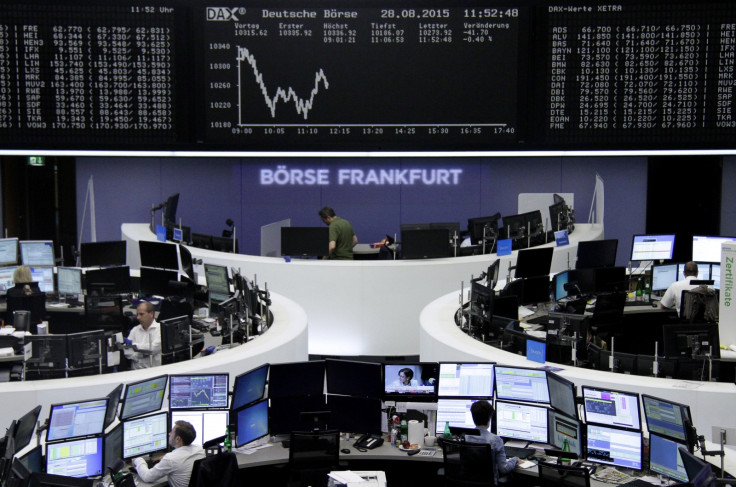European stock markets open relatively flat but reporting strong gains since Black Monday losses

European stock markets were steady to lower on Friday 28 August, after one of the most turbulent weeks in recent history because of the crash on China's Shanghai Composite.
The FTSE 100 jumped at open and fell shortly after. The index stabilised flat in the late morning after the positive second quarter GDP estimates were confirmed by the Office for National Statistics. The ONS stated that the economy grew by 0.7% between the first and second quarter in the UK.
Year-on-year, GDP growth was 2.6%, also unrevised from the first estimate published and largely fuelled by a net trade that boosted the economy.
Germany's DAX fell slightly by 0.2% – one of the worst performances in Western Europe. The CAC 40, listed in France was relatively flat, reporting a 0.10% dip in the late morning, recovering from a bigger loss just after the opening bell.
European markets saw major ups and downs in the week, starting off with severe losses after the Shanghai Composite lost more than 8% on 24 August and extending losses on the next two days.
China's stock market lost all its gains made in 2015 despite extended efforts from the government and its central bank. On 27 August, the composite gained for the first time in weeks, which had been attributed to positive data published by the US department of commerce although anonymous sources said that it might have been the results of secret government measures.
The index in China closed 5% higher, flirting with its level in January 2015, although trillions have still been written off in the weeks since the devaluing of the Yuan in July.
Overall, European and US markets made good gains in the week, despite the heavy losses on 24 August. The FTSE 100 has surged by 2.4% since the open on 24 August, while the CAC 40 gained 3.4% and the DAX even reported a jump of 4.65%, despite the fact that it dropped under the much feared 10,000 points border.
© Copyright IBTimes 2025. All rights reserved.






















